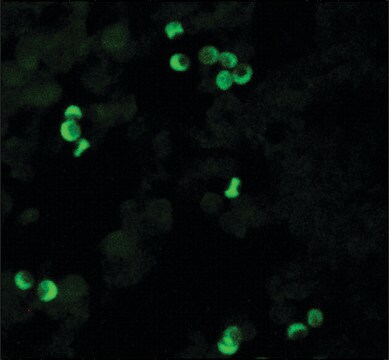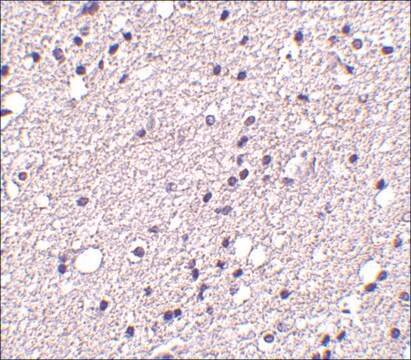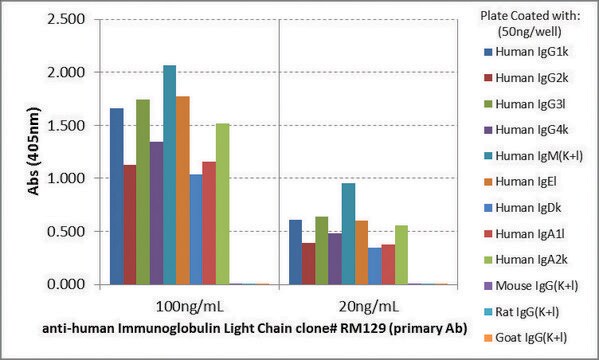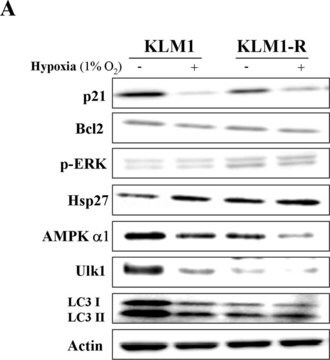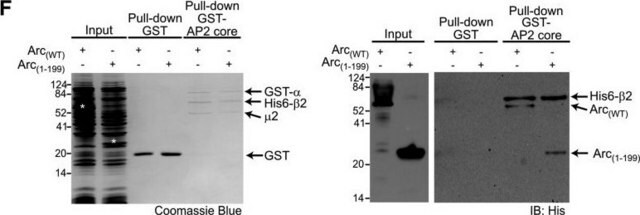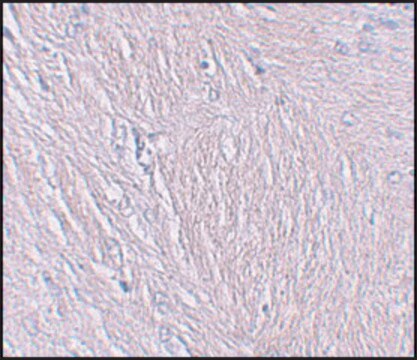SAB4700313
Monoclonal Anti-HLA-G-Biotin antibody produced in mouse
clone MEM-G/9, purified immunoglobulin, buffered aqueous solution
Autenticatiper visualizzare i prezzi riservati alla tua organizzazione & contrattuali
About This Item
Codice UNSPSC:
12352203
NACRES:
NA.41
Coniugato:
biotin conjugate
application:
FACS
Clone:
MEM-G/9, monoclonal
Reattività contro le specie:
human
citations:
4
tecniche:
flow cytometry: suitable
Prodotti consigliati
Origine biologica
mouse
Livello qualitativo
Coniugato
biotin conjugate
Forma dell’anticorpo
purified immunoglobulin
Tipo di anticorpo
primary antibodies
Clone
MEM-G/9, monoclonal
Stato
buffered aqueous solution
Reattività contro le specie
human
Concentrazione
1 mg/mL
tecniche
flow cytometry: suitable
Isotipo
IgG1
N° accesso NCBI
N° accesso UniProt
Condizioni di spedizione
wet ice
Temperatura di conservazione
2-8°C
modifica post-traduzionali bersaglio
unmodified
Informazioni sul gene
human ... HLA-G(3135)
Categorie correlate
Descrizione generale
The antibody MEM-G/9 reacts with native form of human HLA-G1 on the cell surface as well as with soluble HLA-G5 isoform in its beta2-microglobulin associated form. HLA-G belongs to the MHC Class I molecules (MHC Class Ib; nonclassical) and it is expressed on the surface of trophoblast cells. The antibody MEM-G/9 is standard reagent thoroughly validated during 3rd International Conference on HLA-G (Paris, 2003).
Histocompatibility leukocyte antigen–G (HLA-G), a naturally occurring immunosuppressive molecule, is located on human chromosome 6p21. HLA-G gene codes for a tolerogenic protein.
Histocompatibility leukocyte antigen–G (HLA-G), a naturally occurring immunosuppressive molecule, is located on human chromosome 6p21. HLA-G gene codes for a tolerogenic protein.
Immunogeno
Recombinant human HLA-G refolded with beta2-microglobulin and peptide
Applicazioni
The reagent is designed for Flow Cytometry analysis of cells expressing HLA-G molecule on the cell surface using a 1:1000 dilution. Indicated dilution is recommended starting point for use of this product. Working concentrations should be determined by the investigator.
Azioni biochim/fisiol
Histocompatibility leukocyte antigen–G (HLA-G) plays an important role in preventing the activities of natural killer (NK) cell and inducing immune escape. It has the ability to block immune competent cells and innate and adaptive immune system. Mutations in the gene increases the risk of susceptibility to a wide range of inflammatory diseases, including asthma.
Caratteristiche e vantaggi
Evaluate our antibodies with complete peace of mind. If the antibody does not perform in your application, we will issue a full credit or replacement antibody. Learn more.
Stato fisico
Solution in phosphate buffered saline, pH 7.4, with 15 mM sodium azide.
Esclusione di responsabilità
Unless otherwise stated in our catalog or other company documentation accompanying the product(s), our products are intended for research use only and are not to be used for any other purpose, which includes but is not limited to, unauthorized commercial uses, in vitro diagnostic uses, ex vivo or in vivo therapeutic uses or any type of consumption or application to humans or animals.
Non trovi il prodotto giusto?
Prova il nostro Motore di ricerca dei prodotti.
Codice della classe di stoccaggio
10 - Combustible liquids
Punto d’infiammabilità (°F)
Not applicable
Punto d’infiammabilità (°C)
Not applicable
Scegli una delle versioni più recenti:
Possiedi già questo prodotto?
I documenti relativi ai prodotti acquistati recentemente sono disponibili nell’Archivio dei documenti.
Human Leukocyte Antigen-G Inhibits the Anti-Tumor Effect of Natural Killer Cells via Immunoglobulin-Like Transcript 2 in Gastric Cancer.
Wan R, et al.
Cellular Physiology and Biochemistry, 44(5), 1828-1841 (2017)
Recipient HLA-G+ 3142 CC genotype and concentrations of soluble HLA-G impact on occurrence of CMV infection after living-donor kidney transplantation.
Guberina H, et al.
International Journal of Molecular Sciences, 18(11), 2338-2338 (2017)
HLA-G molecules and clinical outcome in Chronic Myeloid Leukemia.
Caocci G, et al.
Leukemia Research, 61, 1-5 (2017)
Differential expression of HLA-E, HLA-F, and HLA-G transcripts in human tissue.
Wei X and Orr HT
Human immunology, 29(2), 131-142 (1990)
Ana S López et al.
Molecular immunology, 43(14), 2151-2160 (2006-02-24)
Dendritic cells (DC) are strong inducers of immunity but they can also be tolerogenic. During monocyte differentiation to DC the immunosuppressive indoleamine-2,3-dioxygenase (IDO) is induced. IDO degrades Trp to kynurenine, which is further metabolized to 3-hydroxyanthranilic acid. DC can also
Il team dei nostri ricercatori vanta grande esperienza in tutte le aree della ricerca quali Life Science, scienza dei materiali, sintesi chimica, cromatografia, discipline analitiche, ecc..
Contatta l'Assistenza Tecnica.